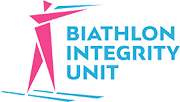2021 World Anti-Doping Code to take effect for world’s biathletes
In six weeks’ time, on 1 January 2021, the World Anti-Doping Code (Code) will take effect for the world’s athletes.
With the Code set to be introduced midway through the 2020 – 2021 Biathlon season, it is essential biath-letes, their coaches, doctors, physios and administrators and other individuals within national biathlon federations are familiar with the anti-doping rules in the document; and, above all, the responsibilities they have under the Code framework.
As is customary, the Code will be released alongside eight International Standards, which, together, serve to protect athletes’ rights to participate in clean sport and ensure consistent anti-doping programmes across the world.
The 2021 Code contains some important changes from its 2015 predecessor, including:
-
Athletes’ Anti-Doping Rights Act – this new Act promotes athlete rights within anti-doping for the first time, and ensures they are clearly outlined, easily accessible and applicable globally (e.g. an athlete has the right to anti-doping education);
-
Bans – where “aggravating circumstances” can be proven, (e.g. using multiple banned substances), a ban can be increased by an additional two years;
-
Anti-Doping Rule Violations (ADRVs) and Whistleblowing – there is a new ADRV included in the Code to protect individuals sharing information on doping in sport (also known as whistleblowers). Within the new Code, it will become an offence to either discourage the reporting of information or to retaliate against an individual for sharing information;
-
Substances of Abuse – shorter bans are possible for a certain group of substances when found in competition* if it is determined that their use was out of competition and not related to sports performance (it is recognised that taking these substances could be part of wider substance abuse or an addiction problem, which could lead to a reduced ban if a substance misuse treatment programme is completed);
-
Fraudulent Conduct – if an individual engages in fraudulent conduct following an alleged ADRV (e.g. falsifying documents, attempted complicity or tampering), this will be treated as a separate offence and an additional ban can be applied.
The 2021 World Anti-Doping Code will be the fourth of the global anti-doping rulebook; previous editions of which came into effect in 2003, 2009 and 2015. You can find the full 2021 Code on WADA’s website.
As the new organisation protecting the integrity of biathlon, we are here to provide guidance and help you with any questions you may have surrounding the Code. Alternatively, if you have any specific concerns about the new Code and how it impacts you, we advise that you speak to your National Anti-Doping Organization (NADO).
If you have any questions, please don’t hesitate to reach out to one of the Biathlon Integrity Unit (BIU) team at: [email protected]
*In-Competition – ‘The 2021 Code provides a standard definition for “in-competition” which is the period commencing at 11:59 pm on the day before a competition in which the athlete is scheduled to compete through the end of such competition and the sample collection process related to such competition.


